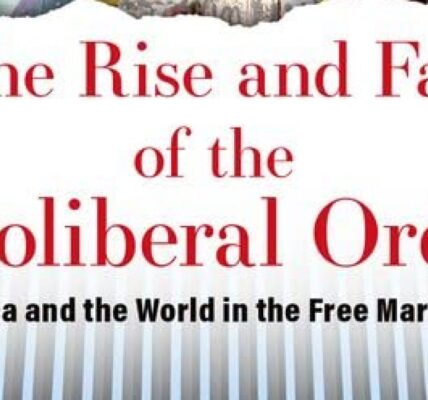Vulture Capitalism addresses one of the most urgent political-economic questions of our time: why do we live under a system that calls itself free while concentrating power in the hands of a few unaccountable actors? Grace Blakeley, a British economist and journalist, approaches the subject with a polemical, activist lens, drawing on Marxist political economy and institutional analysis. Building on a long tradition of democratic socialism, Blakeley’s method blends sharp critique with illustrative case studies—ranging from corporate negligence to financial bailouts. The book’s three-part structure—on capitalism and freedom, the role of planners, and democratic alternatives—mirrors her central aim: to expose the myth of market freedom and chart a path toward democratic planning.
Blakeley argues that contemporary capitalism is a system of planned unfreedom, where corporations, financial institutions, and states coordinate to protect elite interests under the guise of market logic. Rather than a spontaneous order, capitalism is shown as a system of centralized control—where power is exercised through both state policy and private decision-making. In reframing capitalism as a form of oligarchic planning, the book resonates deeply with ongoing crises: from tech monopolies and environmental collapse to COVID-era corporate bailouts. It critiques the neoliberal promise of liberation through markets and exposes the authoritarian realities it has entrenched.
The book emerges from Blakeley’s years of political commentary and public engagement, particularly in the wake of the 2008 financial crisis and its aftermath. Her intent is to bring Marxist and socialist critiques of capitalism to a wider audience without academic jargon. She explicitly rejects the limited framework of Keynes vs. Hayek, arguing that both perspectives marginalize the role of working-class democratic agency. By pulling together familiar critiques of corporate power into a clear and comprehensive framework, Blakeley aims to empower readers to see capitalist society as planned—and therefore changeable.
Blakeley structures her thesis around planning: who plans, how they plan, and in whose interest. She dismantles the myth that planning is solely the domain of states in socialist societies. Instead, she illustrates how capitalist states and corporations regularly plan—just not for the public good. Thematically, she explores corporate governance, imperial entanglement, and economic coercion, connecting them to structural issues like class inequality, ecological degradation, and technocratic capture. Her core challenge is to the false binary between markets and planning, revealing capitalism as a hybrid system shaped by elite coordination.
The opening chapter, “How to Get Away with Murder,” provides a searing critique of Boeing’s corporate negligence and its entanglement with the U.S. state. This ideological case study reveals how corporate malfeasance is not an aberration but a feature of capitalist planning. Blakeley blends investigative journalism with left-wing political economy, showing how regulatory agencies are co-opted and how capitalist power is institutionalized. This chapter starkly challenges the liberal notion of neutral markets and offers a vivid ideological reframing of what “freedom” under capitalism really entails.
Later chapters explore the psychological consequences of alienation under capitalist planning. The book’s introduction and Part III highlight how individuals internalize powerlessness despite living in nominal democracies. Blakeley ties this to the limited choices consumers face, and the disempowerment workers feel in economic life. These sections build on Marxist and psycho-social theory to show how ideology masks control. The socialist alternative she proposes—a system where planning is democratic and participatory—challenges not only institutions, but also the internalized belief that change is impossible.
In chapters like “Capital’s Cronies” and “Money at Six Per Cent,” Blakeley offers macro-level analysis of how financial institutions and states collaborate to preserve elite interests. Through discussions of backdoor bailouts, central bank interventions, and tax privileges, she critiques the notion that markets function independently of politics. Her economic analysis is deeply structural, rooted in Marx’s theory of capital and Ellen Meiksins Wood’s ideas on the fusion of political and economic power. These chapters reveal that the neoliberal state has not withered—it has simply been repurposed to serve capital.
Some chapters, particularly those in the second half, rely heavily on already familiar examples (e.g., Boeing, financial bailouts) and reiterate earlier arguments without always expanding them. At times, Blakeley’s tone becomes rhetorically repetitive, emphasizing outrage over analytical depth. Readers seeking more empirical or globally comparative analysis—especially from the Global South—may find the scope too Anglo-American. The book’s strength is its clarity, but it sometimes sacrifices nuance for accessibility.
While Blakeley excels at dismantling neoliberal myths, she engages less directly with market-liberal arguments in their strongest form. Her critiques of Hayek and Keynes are compelling but brief; more robust engagement with neoliberal legal and institutional thought (such as Buchanan’s public choice theory) would have strengthened her case. Similarly, the book doesn’t always grapple with how democratic planning could avoid past socialist failures—though she hints at this in the final section.
The book draws heavily from journalistic reporting, public economic data, and leftist political theory. While this lends the work a grounded and accessible feel, it also leads to a narrow source base. Corporate power is largely viewed through the lens of state-corporate collusion, with less attention given to how consumers, civil society, or non-state actors (e.g., unions, cooperatives) interact with or resist this power. That said, her call for democratizing planning is strengthened by examples like participatory budgeting and worker control, even if these case studies are brief.
Vulture Capitalism is a fiery and compelling critique of the illusion of freedom under late capitalism. Its central contribution is to reframe the debate away from markets vs. state toward the deeper question of who plans, how, and for whom. Grace Blakeley delivers an accessible yet radical argument, firmly grounded in Marxist tradition but aimed at contemporary political transformation. Despite some repetition and a limited engagement with alternative schools of thought, the book is a powerful intervention that demands we take planning seriously—and imagine what it could look like in democratic hands.



